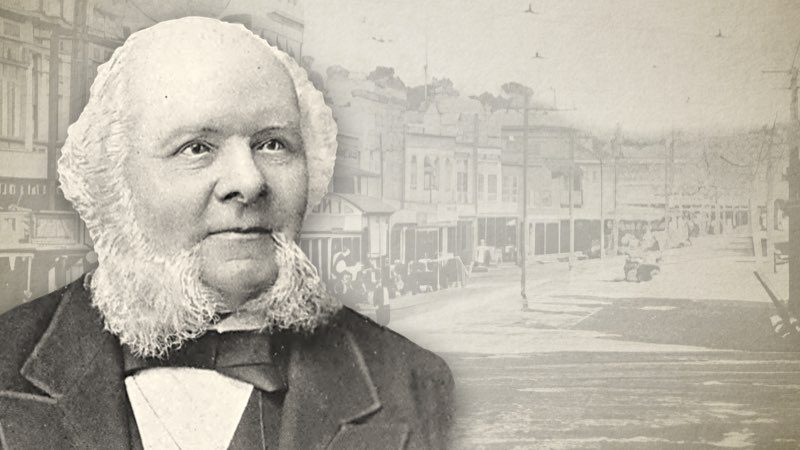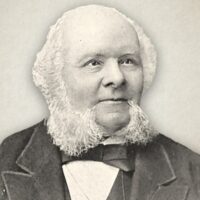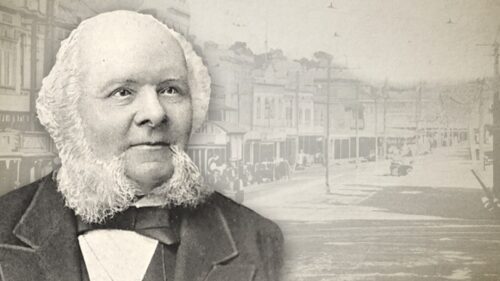
Despise Not Prophesyings
“Despise Not Prophesyings.” 1 Thessalonians 5:20
That is, if they are stamped with God’s authority, and not man’s. As our adorable Jesus sat upon the Mount of Olives, the disciples came unto him privately (Matt. 24:3). Beloved, cannot you picture the lovely scene, the heavenly countenance of God the Son, as he complacently answers the eager inquiries put to him by the group of faithful followers? The words at that season, uttered by the true and living God in human form, it is not difficult, we think, to prove have a direct reference to the very circumstances and changes which we are witnesses of in the present day in connection with our beloved country.
The disciples said unto him, “Tell us when shall these things be, and what shall be the sign of thy coming, and of the end of the world.” In reply, Jesus describes events that shall occur, which are the beginning of sorrows, and speaks of the rising up of false prophets, of the gospel of the kingdom being preached in all the world for a witness unto all nations, and then puts forth this important statement, “When ye therefore shall see the abomination of desolation, spoken of by Daniel the prophet, stand in the holy place. Whoso readeth, let him understand” (Matt. 24:15).
Our inquiry first, then, is, “What is the abomination of desolation spoken of by Daniel?” and secondly, “Can we see any signs of it?” Daniel writes of an impious tyranny set up in reference to the overthrow of Persia by the King of Grecia of leagues and conflicts between the kings of the south and of the north—of the invasion and tyranny of the Romans, and of “the abomination that maketh desolate” (Dan. 1:31). But while Daniel refers to the first year of Darius the Mede, do we err to connect it with the thirteenth year of Victoria of England, if we can prove that the signs which our Saviour speaks of, in connection with the approach of his second coming, are apparent? If this be allowed, have we any difficulty in answering the question, Who is the great HE, the King of the north, referred to by Daniel, who is to perform the following acts?—“He also shall set his face to enter, with the strength of his whole kingdom;” after this, “He shall turn his face unto the isles, and shall take many;” “He shall obtain the kingdom by flatteries, and after the league made with him he shall work deceitfully;” “and he shall do according to his will, and he shall exalt himself, and magnify himself above every god;” “Thus shall he do in the most strong holds with a strange god, whom he shall acknowledge and increase with glory, and he shall cause them to rule over many, and shall divide the land for gain.” Now all these things are spoken of in connection with the abomination that maketh desolate, which our blessed Saviour commands a reference to, in answer to his disciples’ question, “What shall be the sign of thy coming?” And the inquiry that suggests itself, then, is, “Can we see the signs of it?” Is there a great King “who has turned his face unto the isles,” and “tried to obtain the kingdom by flatteries,” “working deceitfully,” “doing according to his will,” “exalting and magnifying himself above every god,” and “dividing the land for gain?” In short, what is the abomination that maketh Ireland desolate, and that affects the prosperity, spiritually and temporally, of the people of every nation that are subject to its yoke? Is it not Popery? However a great king may pretend to hold the keys of the kingdom of heaven, a poor wayfaring man makes no pretence to possess the keys of prophecy, and will, therefore, thank any Christian brother, who views the matter differently, to set him right concerning it. The apostles asked our Saviour for a sign of his coming. In his important reply he says, “When ye therefore shall see the abomination of desolation, spoken of by Daniel the prophet, stand in the holy place.” We refer to Daniel’s description of the abomination that maketh desolate, and we see that prophecy being fulfilled to the very letter; and what is the deduction to be drawn from such reflection? Our beloved Lord tells us, “Watch, therefore, for ye know not what hour your Lord doth come.” This, then, is for us to consider, with deep soul inquiry, ” If the Son of Man should come in his glory, and all his holy angels with him, this day or this night, what would be our position?” Ungodly sinner, what will be thy standing at the second coming of him whom ye know not, whom ye love not, and whom ye serve not? Unhappy Socinian, how wilt thou stand before him who cometh in the clouds of heaven, with power and great glory, with thy puerile faith in him as merely “a good and excellent man?” Unbecoming Neutralist, how wilt thy plea of being “no religionist” do at the tribunal of the great and terrible God? Unregenerate Formalist, how will your “hay and stubble” righteousness stand the brightness and glory of the coming of Christ? Who, then, can be saved? And Jesus said unto them, “Verily, I say unto you, that ye who have followed me in the regeneration, when the Son of Man shall sit on the throne of his glory, ye also shall sit upon twelve thrones, judging the twelve tribes of Israel.” Regeneration, then, is the passport to heaven; and those only can be saved at “the battle of that great day of God Almighty” (Rev. 16:14), who are regenerated by the Spirit and grace of God, and born again in Christ Jesus.
“Day of judgment, day of wonders,
Mark the trumpet’s awful sound,
Louder than a thousand thunders
Shakes the vast creation round!
How the summons will the sinner’s heart confound!
“See the Judge our nature wearing,
Clothed in majesty divine;
You who long for his appearing
Then shall say, ‘This God is mine
Gracious Saviour, own me in that day of thine.'”
New Years Day, 1851
George Cowell (1822-1884) was an Independent sovereign grace preacher and author. He also served a short time as editor of the Gospel Magazine.




